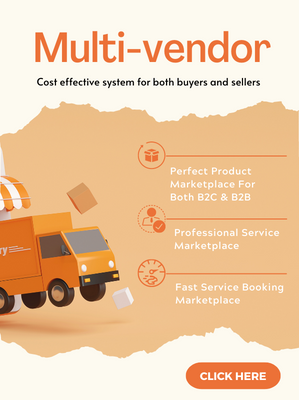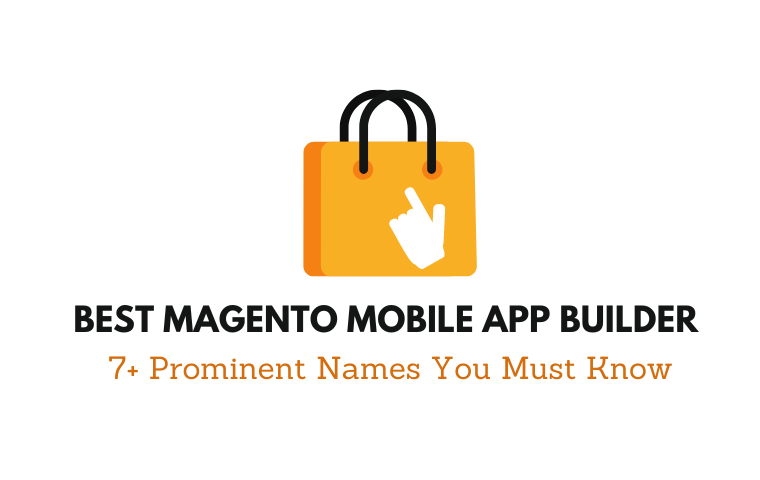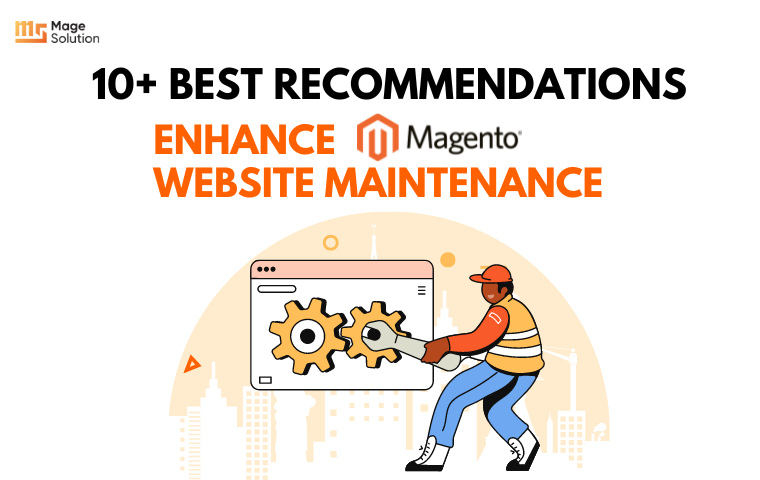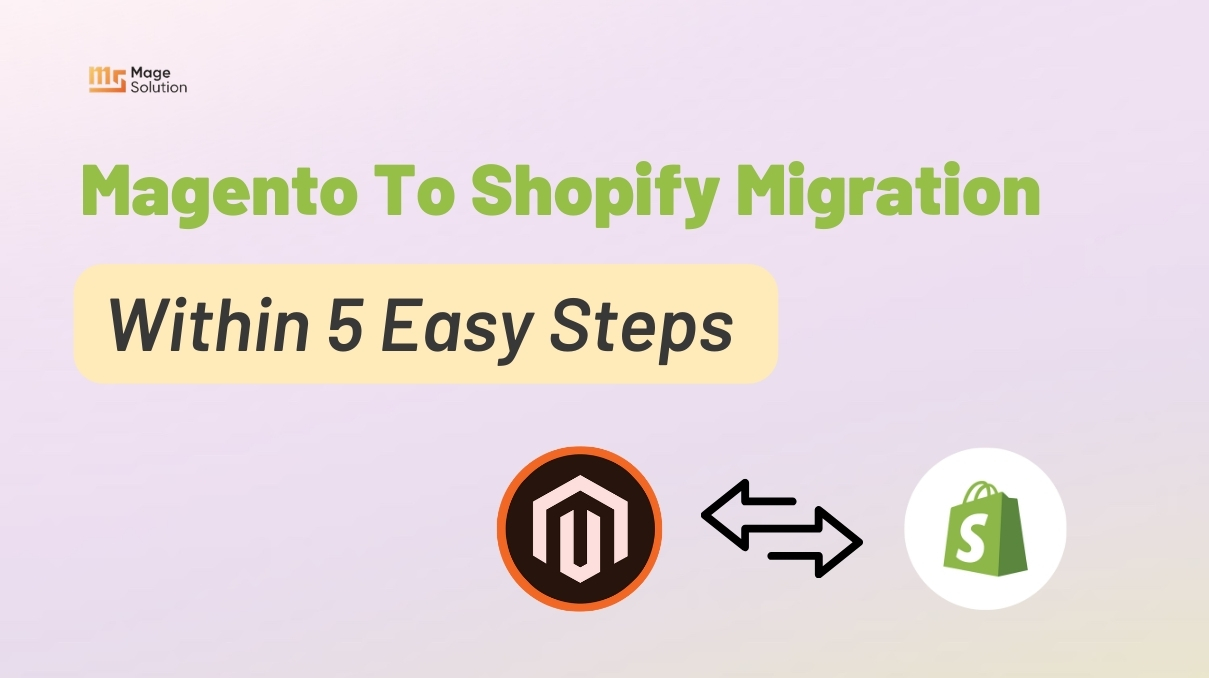Although there are lots of newly emerging eCommerce platforms such as Squarespace, Wix, Weebly, Woocommerce, and Magento are still favorite destinations for merchants to start their online businesses. Each platform will bring different experiences for users. Depending on their goal and purpose, they can pick up Woocommerce or Magento. If you are a beginner or not familiar with both platforms, you can feel a little bit confused. This is the reason we want to write this series to help you consider: What is the right option for your eCommerce business?
A brief about WooCommerce vs Magento

What is Magento?
Magento is an e-commerce platform that is definitely for web developers and medium-sized to large-sized online companies. It is perfect for stores with high goals because it has one of the most complete feature sets available in the industry.
What is WooCommerce?
The WordPress platform has a strong plugin called WooCommerce. While maintaining the user-friendliness of its parent platform, it provides all the capabilities you require from an e-commerce solution.
WooCommerce vs Magento: A look at their features
| WOOCOMMERCE | MAGENTO |
| Completely free platform. It’s totally free for merchants. | Providing both a free Community version and some premium services. |
| A web host will be your responsibility. | If the Community version’s self-hosted, the premium version provides hosting. |
| Adding unlimited products. | Having the ability to add unlimited products. |
| Nearly all WordPress themes are available and there is a slew of customization options. | Providing a theme-based system and a decent variety of choices. |
| Coming with an extension system and hundreds of options. | Assisting extensions and providing an expansive variety of them too. |
| Containing basic security features to protect your store. | Providing advanced security features, as well as dedicated patches to close any vulnerabilities that show up. |
| The platform is really user-friendly. | Suitable for users that have (at least) a basic level of web development knowledge. |
What each platform has to offer

WooCommerce
Key features:
- Offers endless product support.
- Has a strong extension system built on the WordPress plugin architecture.
- Allows you to use extensions to choose practically any payment processor.
- Provides a wide range of both free and paid themes.
Pros:
- Except for the costs of connecting with web hosting, creating a store is free.
- If you have any prior WordPress experience, it’s simple to learn.
- For its users, there is a ton of documentation available. In addition, you can get in touch with the project’s crew if you have any further inquiries.
- Utilizes an add-on for Google Analytics integration.
- Assisting for SSL is present, however, you must procure your own certificate.
Cons:
- You must become familiar with two new platforms if you don’t use WordPress.
- The price of premium themes and extensions can quickly mount.
Is it good for beginners?
- Users who have never used an e-commerce platform should use WooCommerce, and if they have used WordPress in the past, even better. WooCommerce’s superb documentation and wealth of online training will appeal to even those who haven’t used it before.
Magento
Key Features:
- As every respectable self-hosted platform should, provides an infinite number of items!
- Features a unique theming and layout system.
- Consists of effective APIs that are connectable to any third-party solution.
- Tools for creating products and intuitive admin interfaces.
Pros:
- Scalability is a strong feature. Large stores shouldn’t pose a difficulty for Magento as long as your host can handle them.
- Customers can inspect more quickly because of a simplified process. Additionally, guest checkout is enabled by default.
- Integrates out of the box with PayPal, Authorize.Net, and Braintree.
Cons:
- Due to its steep learning curve, Magento seems to be more suitable for developers than general consumers.
- Due to its intended market, its Enterprise Edition can be fairly expensive, but that is to be expected.
Is it good for beginners?
When in comparison to WooCommerce, Magento doesn’t feel easy to use for beginners. Users can get around that by consulting the rich documentation, and the platform does provide extra benefits for those who persevere. It’s ideal for ambitious users who have the time to spend getting to know the platform and who want to scale their shops quickly.
WooCommerce vs Magento – Detailed Comparison

Pricing
WooCommerce Pricing
A free open-source platform is WooCommerce. Despite the fact that WooCommerce is free to use, you must still spend money for a domain name, web hosting, and SSL certificate (starting at $9/month). Additionally, themes and website designs typically cost between $50 and $100, while plugins and extensions start at $25. (Refer to pluginhive.com)
WooCommerce’s total cost is difficult to predict because it depends on how many essential features you decide to buy. For businesses with limited resources, picking necessary features and free services is the best option.
It is obvious that WooCommerce’s prices are lower. But, its capabilities were unable to assist in managing the escalating customer base or expanding the company. Magento, on the other side, provides more useful functionality and cost options. Users would therefore do better to select a service whose pricing matches their plans.
Magento Pricing
There are three different Magento price versions: Magento Enterprise (a premium paid edition of Magento) offers rich, additional capabilities to support large-scale and complicated organizations; Magento Community (a free platform; only includes basic functionalities); and Magento Enterprise Cloud (Basically the same as Magento Enterprise but in the cloud).
You may comfortably download and install the Magento Community edition for free. However, paying for hosting services still costs money (beginning at $10). When you buy various things you’ll need to have your store up and running flawlessly, the cost will be considerably more. You might run into premium hosting ($10), domains ($10–$500), themes ($0–$200), and extensions ($50–$500).
You can find incredible features in Magento Enterprise including sophisticated inventory and warehouse management, detailed admin roles, and business intelligence tools. Large stores with heavy workloads and intricate business needs should go for this edition.
There is no set licensing charge for Magento Enterprise users in terms of pricing. The monthly calculation is based on the yearly Gross Sales Revenue (GSR). The lowest price for $0 to $1,000,000 GSR is $22,000, while the highest price is $125,000 for $25,000,000 to $50,000,000 GSR. (Reference: onilab.com)
A managed, automated hosted platform is Magento Enterprise Cloud. Because this version contains hosting so it is more expensive than the others.
A wide range of extra features is available with Magento Cloud, including complete customization, top security, and excellent web storefront scalability. These advantages aid in differentiating it from other editions.
The price of Magento Enterprise Cloud typically ranges from $40,000 to $190,000, and it also depends on the gross sales revenue generated annually.
Security

It is impossible to exaggerate how crucial security is for e-commerce companies. Customers want you to protect both their private information and payment information, and you need to meet those expectations.
The security of your online store is mostly in your hands, just like performance. You may install a number of cutting-edge security features with WooCommerce and Magento, but largely through extensions and manual modifications. Although no platform can be completely secure, Magento leads the pack in this area by providing users with specialized security fixes.
The drawback in this situation is that applying Magento security patches isn’t especially simple. E-commerce novices could feel overwhelmed if they attempt to handle it on their own, which contributes to a large number of Magento stores being out-of-date.
However, Magento is the clear victor if you take security seriously and you have some experience with web programming (or don’t mind paying for help).
Product management
Good product management is probably at the top of your list of considerations if you’re searching for the ideal online business. WooCommerce provides choices for both physical and digital products, taking a straightforward approach to product administration. It’s very easy to set up new products, especially if you’re already comfortable with WordPress. Additionally, you can always increase the platform’s capability using add-ons like Product Add-Ons:
On the other side, Magento provides a number of functions that WooCommerce is missing without the need for additional extensions. For instance, it allows complex pricing rules, wishes lists, grouped goods, product ratings, and product personalization. It has clear functional benefits, but that means there is a longer learning curve.
In general, WooCommerce is a superior option for those whose stores don’t require complex functionality right away. It helps you to quickly launch a store, which is useful for small businesses, and you can decide to later add more features using extensions. WooCommerce defeats Magento in the third round of their battle.
Extensions & Plugins
WooCommerce Plugins
Users of WooCommerce can access hundreds of WooCommerce extensions, both free and paid, to meet all of their technological, marketing, and logistical requirements.
Besides, more than 55,000 free WordPress plugins and themes are available to you with WooCommerce, which runs on top of WordPress. In terms of product type, shop administration, marketing, payments, shipping, enhancements, and subscriptions, you can design your eCommerce store. Additionally, integrating them into WooCommerce stores is simple.
Magento Extensions
Similarly, because Magento has a thriving community of developers, agencies, and freelancers, it uses a wide range of commercial and unpaid third-party extensions.
Currently, the Magento Marketplace contains close to 4000 extensions for a variety of purposes, including reporting and analytics, customer assistance, marketing, sales, payment and security, content and customization, and accounting and finance.
Both WooCommerce and Magento offer a wide range of extension options to increase sales and expand your business. Make sure to install the options you actually need out of the 1,000 available options so you can preserve your store’s capacity without compromising performance.
Scalability

Scalability of WooCommerce
WooCommerce asserts that an online business can manage an unlimited number of products. The platform offers numerous free extensions in addition to scalability solutions, as was already indicated. As a result, this platform enables a company with a little budget to maintain minimal prices.
WooCommerce may need more installations at once in order to support business growth when compared to Magento (with its built-in functionality). The issue is whether your WordPress hosting account has enough resources to handle all of the extensions.
Scalability of Magento
Scalability is a crucial component of Magento because it is positioned as a CMS for ambitious online retailers. If your company sells more than 1000 products, Magento is unquestionably the right choice for you. It can easily run enterprises with thousands of products and hundreds of locations. Even the most demanding enterprises may find the extensions and solutions they need with Magento.
Remember that the price will vary depending on how you choose to build your Magento website and that the procedure might be challenging at times. In particular, Magento offers users the best option for growing their businesses: Adobe Commerce. Users can design multi-channel commerce experiences for B2B and B2C clients on a single platform. From the catalog through payment to fulfillment, our cloud-based solution is infinitely flexible, extensible, and scalable.
Security
WooCommerce Security
There are no obvious security vulnerabilities with WordPress, and WooCommerce is still relatively secure on its own. This system’s foundation has undergone extensive development, hence it is relatively secure. Only when third parties are involved in putting up extensions might there be issues.
Magento Security
In the meanwhile, Magento has the capability to make its stores incredibly safe. With frequent releases of specialized security fixes, Magento gives online store owners greater security.
Additionally, The adaptation of a variety of available built-in security measures can protect Magento management and installation. These actions could improve file system ownership & rights, strengthen the defense against cross-site scripting and clickjacking assaults, and improve password management.
In conclusion, WooCommerce and Magento satisfy the security requirement. They both might, however, be exposed to external threats. With its certified security extensions, Magento appears to be more secure in this situation.
Marketing & SEO

WooCommerce SEO & Marketing
WooCommerce supports its eCommerce content marketing campaigns because it is a plugin built on the WordPress platform and takes over all cutting-edge writing blog functions. On the other side, if you already have an effective method for getting your material and ideas to visitors, there is no need to add the blogging feature. Additionally, you can quickly add any additional features to your blog sites and landing pages by using shortcodes.
Magento SEO & Marketing
The core platform of Magento has a robust collection of SEO tools that can assist you to improve your search engine rankings. Additionally, Magento generates a Marketing Menu for controlling advertising, correspondence, user-generated content, and SEO.
Nevertheless, you should be aware that blog functionality is not offered by default in Magento and you must install a specific blog extension for it. Additionally, you can resort to Magento SEO agencies for support.
Users may effectively promote their goods and services to clients with the help of the key marketing capabilities of Woocommerce vs Magento.
Support
WooCommerce Support
Between Woocommerce vs Magento, Users of WooCommerce won’t receive a lot of assistance, much like with the Magento Community edition. Users frequently turn to WooCommerce support services for assistance when issues emerge.
It might be advisable to employ a developer or other specialist to assist you if technical problems arise.
Magento Support
Both Woocommerce vs Magento benefit from having a sizable user base and community because they are open-source platforms. Both platforms offer a sizable global community that may assist store owners if they encounter any issues.
Magento Community Edition and Magento Enterprise Edition offer very different levels of customer support. As an open-source platform, support for Magento Community Edition is only somewhat comprehensive. Users only consult and request assistance from the Magento forums and communities. Users of Magento Enterprise, on the other hand, will receive official, comprehensive assistance that includes email and lives support.
What’s Unique about WooCommerce vs Magento?
The WordPress platform has a strong plugin called WooCommerce. It maintains the simplicity of its parent platform while offering all the capabilities you’d expect from an eCommerce platform.
The eCommerce platform Magento was created primarily for web designers and medium-sized to large online shops. It is ideal for stores with high goals because it has one of the most complete feature sets in the sector.
Conclusion
We come to the end of the topic to find out Woocommerce vs Magento: What is the right option for your eCommerce business? Each platform will own its strength and weaknesses. Therefore, we hope our blog will provide helpful information for you to explore what platform will suit you. If you have any questions or want to know more about our Magento Development service, please contact us.



